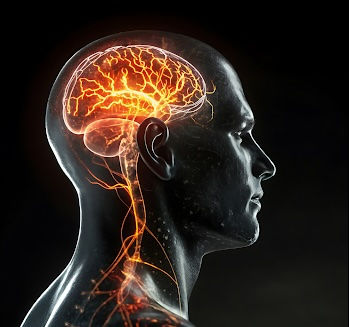Cough Headaches & EDS/HSD
- Marcia Cristiane Perretto

- May 12, 2021
- 2 min read
Updated: Feb 19, 2024

A cough headache is something that sounds pretty intuitive to understand. But when we mix joint hypermobility into it, it can be a bit more complicated. Cough headaches are a type of headache caused by coughing and other types of muscular straining, such as sneezing, laughing, crying, singing, or even bending over.
Doctors have divided cough headaches into two different categories: primary and secondary. Primary cough headaches are often harmless and are improved on their own. But secondary cough headaches, also called symptomatic cough headaches, can be more serious, and can be caused by other problems associated with EDS/HSD. Secondary cough headaches are normally longer lasting, include dizziness, unsteadiness, tingling in the face or arms, and even fainting.
For those with EDS/HSD, it has been observed that secondary coughing headaches are often caused by upper cervical instability (instability in the neck) and lower cervical instability (instability in the lower neck/upper back).
So what do you do if you suspect you are having secondary cough headaches and also have joint instability or EDS/HSD? For those with joint instability, it has been found that almost half of cough headaches are secondary to Chiari I Malformation, especially when present in young people and the pain is located near the base of the skull. This is why it is important for those with cough headaches to get a craniocervical MRI.
Chiari I Malformation is still just one of a few causes for those with instability to experience cough headaches. In addition, changes in cerebrospinal fluid circulation can also contribute to cough headaches, which is also associated with dizziness, headache, vision problems such as sensitivity to light, tinnitus, and tremors. Postural changes (often associated with POTS, IST, and other orthostatic intolerances) have also been reported to worsen their symptoms, primarily when changing head positions or standing up.
Cough headaches can be difficult to deal with, but with the proper treatment and diagnosis progress is always possible!
Be sure to consult with your primary care physician or other medical professionals in regards to your medical concerns. This text cannot and should not replace advice from the patient's healthcare professionals. Any person who experiences symptoms or feels that something may be wrong should seek individual professional help for evaluation and/or treatment. This information is for guidance only.
.png)



Comments